Home-schooling: How to help your child’s online learning
- Published
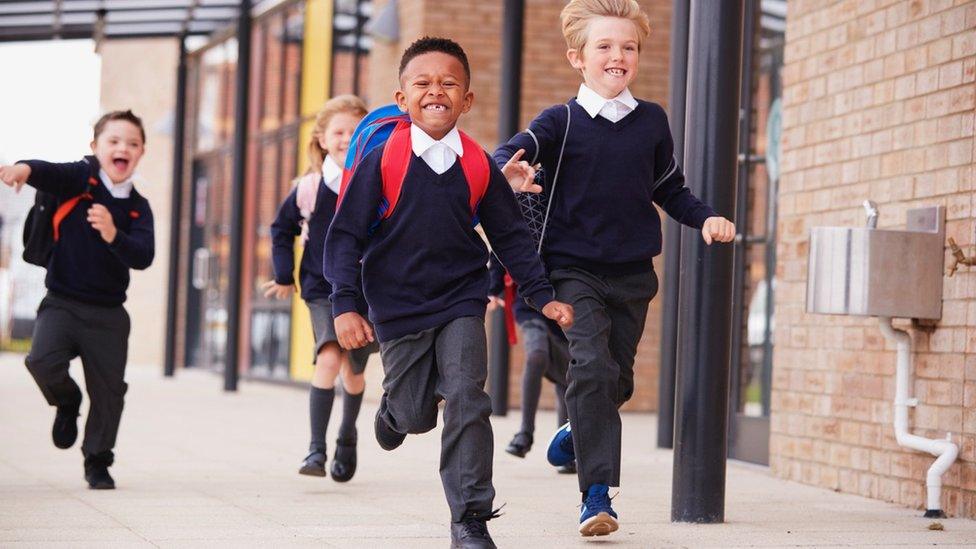
School's out. What next?
With schools once again closing their doors to most pupils, parents, many juggling work and childcare, are having to step in to fill the gap.
Will schools provide resources?
If your child's school already puts work online, via Google Classroom, for example, this will probably continue.
But these sort of tools tend to be used more by secondary schools than primaries.
So older pupils are more likely to be in the routine of checking their school's chosen platform and completing work.
And they are more likely to have their own laptops.
Some schools are asking older children to follow their existing timetables, with some active lessons, involving Google Hangouts and virtual classrooms, and some passive ones, in which children work independently.
And depending on the individual school, there will probably be a system to allow children to submit work and have it marked.
What resources are there online?
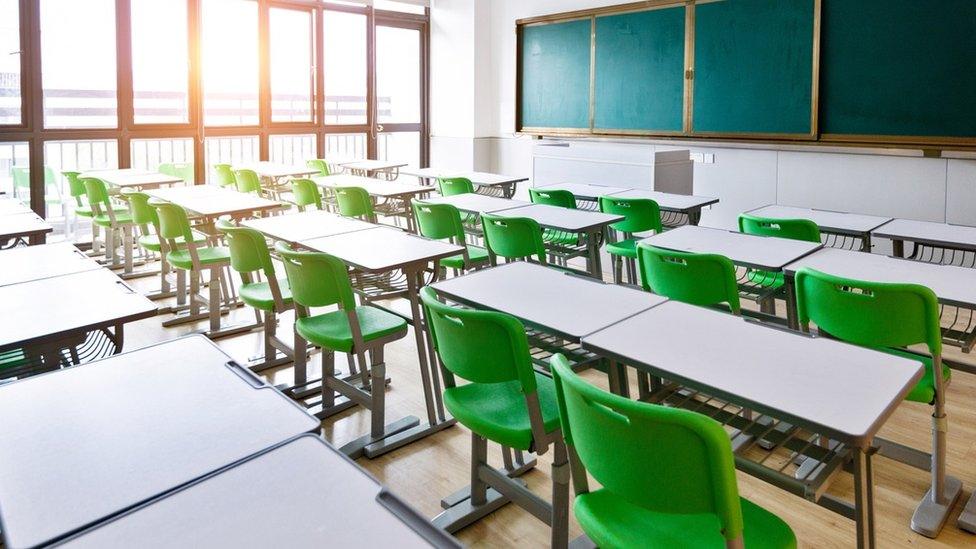
Classrooms may be empty but learning can continue, experts say
ParentKind, external has published a list of free online resources, as has Oak National Academy, external, which is collated by teachers.
Many schools are also providing lists of resources on a range of topics, to help parents navigate this difficult time, such as:
BrainPop, external - animated videos on topics in maths, science and English
Tynker, external - coding lessons
Creative Bug, external - craft lessons, from knitting to jewellery-making, drawing and origami
YouTube's Free School, external - videos on subjects as diverse as the US constitution, coral reefs and the solar system
Should we cover the curriculum?
Many schools already pay for online resources, so it is worth checking which ones you can access, as these will follow the curriculum.
About half of UK schools use sites such as MathsWatch, external, for example, which caters for children from Year 4 up to A-level.
BBC Bitesize has lots of content divided into subject and age categories, with much new material added since March.
The BBC will also show curriculum content on TV every weekday from Monday, 11 January:
primary-school programming, including BBC Live Lessons and BBC Bitesize Daily, from 09:00 to 12:00 on CBBC
at least two hours of programming to support the GCSE curriculum on BBC Two
The government, meanwhile, unlike during the first national lockdown, will expect schools to deliver their own online learning.
If parents have any concerns about their child's education, the government says they should raise it with a teacher in the first instance. If the matter is still not resolved, parents can contact the schools watchdog, Ofsted.
How should we structure the day?
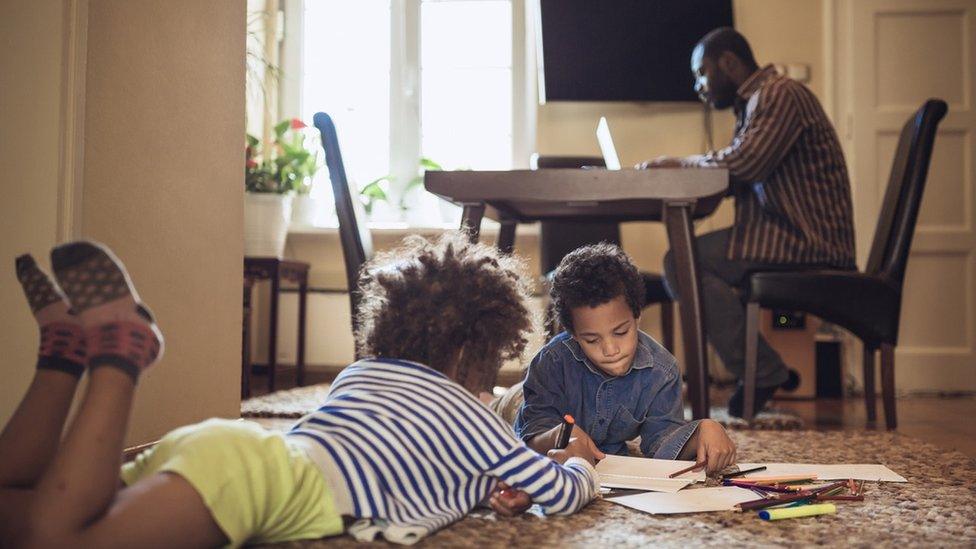
The key will be to establish a routine and make sure there are fun things to do too
Little and often is the advice from MathsWatch co-founder Ken Smith, a teacher for 34 years.
"Even an hour's lesson at school is broken down by teachers," he says.
"And parents need to do the same.
"It is much better to do a little bit every day."
But like the school day, it is important to establish a routine, says Sarah Dove, a teacher who works online with children who cannot attend school.
"The key is finding out what works for you as a family but have a delineation between home life and school," she says.
"Don't spend all day in pyjamas.
"Come together for a mindfulness session rather than an assembly and do topic-based work too."
Even at school, children are not working from 09:00 to 15:00, Ms Wespieser says.
So expecting them "to sit at the table with paper and pen" all day is unrealistic.
But it is important parents think about themselves as well.

It is important for children of all ages to get away from screens and grab some fresh air
"One of the biggest challenges parents have reported to us is balancing their own work with school work," she says.
"And employers may be a bit less sympathetic this time.
"Parents need to look after their own wellbeing and take the time to find what works for you.
"And schools should be giving a lot more advice."
What about devices and data?
In the last lockdown, there were concerns about a digital divide between affluent families with access to laptops and those who did not have devices and may have struggled to get their children online at all.
Add to that the cost of broadband and the fact some parts of the country still don't have access to decent internet speeds, and home-schooling has been a nightmare for many families.
The Department for Education says that more than 700,000 devices have been delivered to schools in England so far during the pandemic - 100,000 of which were delivered last week.
It says it has bought a further 300,000 laptops and tablets which will be delivered to schools for distribution.
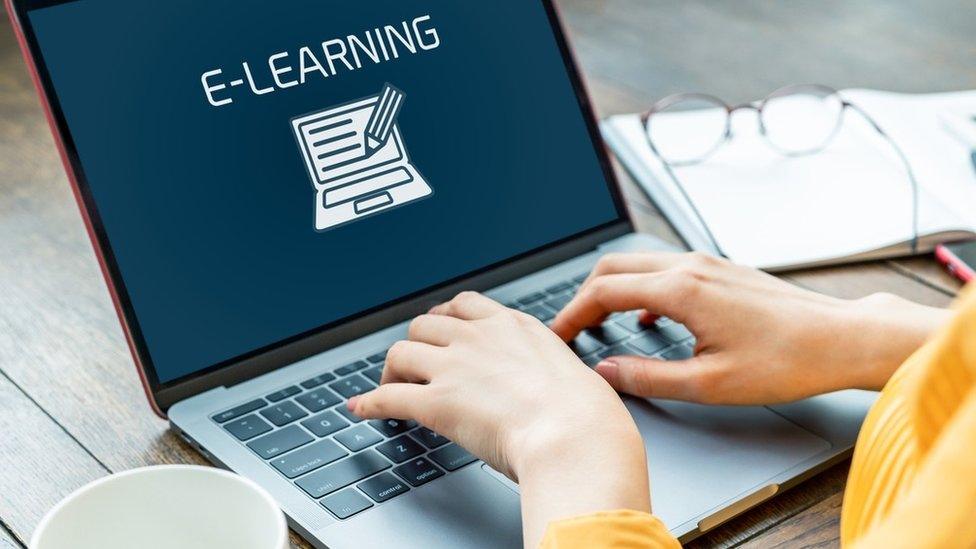
There are tons of learning resources online
Teaching unions have said more still needs to be done, while others have called for data costs on educational apps and websites to be deducted from broadband charges.
Education Secretary Gavin Williamson said that the government is working with mobile phone operators to provide free data for key educational sites,
Customers using BT Mobile, EE, and Plusnet Mobile will be able to access BBC Bitesize content from the end of January without eating into their data allowance.
The Department for Education already runs a scheme for disadvantaged children who do not have access to a home broadband connection, while some internet providers are also helping out.
Related topics
- Published20 March 2020
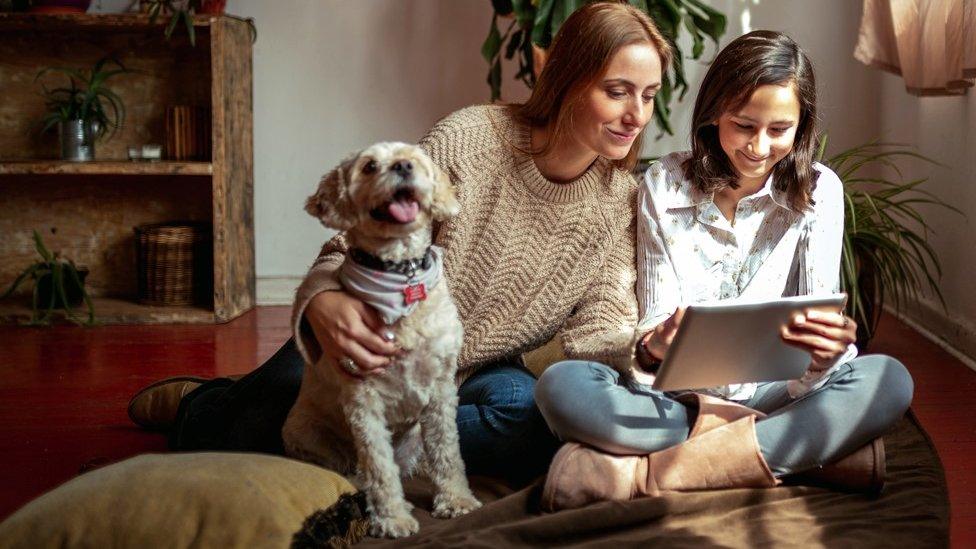
- Published21 March 2020
